Using a free blogging platform makes having your own corner of the world wide web easier than you might think. Sure there's the extended character count on Twitter to share your opinion, but these days people have a lot more to say, which is where which is where free blogging platforms come in very handy. Having your own space online, that's potentially free from the distractions of a billion adverts and countless competing status updates, is an attractive prospect. Blogging is also still a great, organic method of self-promo online, and the best thing is, there are a load of free blogging platforms out there to get you started.
Here you'll find the best the web has to offer, including details to help you decide which free blogging site is right for you. Once you've chosen, head to our how to start a blog post, which will get you up and running in no time.

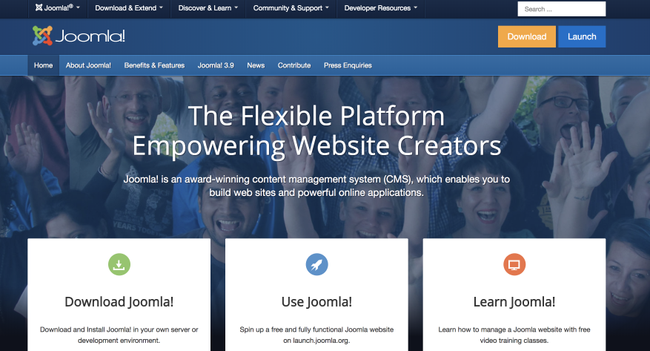
Open source software content management system Joomla is a popular choice among the blogging community. Powerful and flexible, Joomla can be used to build any kind of website or blog, with design features including the ability to create your own template and render HTML for objects/arrays of data. It also uses Bootstrap for perfect responsive designs. Similar to WordPress.org, Joomla is a self-hosted solution, which means you will need a domain name and web hosting to use it (although there is an option to create a site on launch.joomla.org). The Joomla community is much smaller than WordPress community, so there are fewer themes and add-ons than for WordPress. But there are still hundreds of templates to choose from, and extensions to add more features, to fully customise your free blog's design.
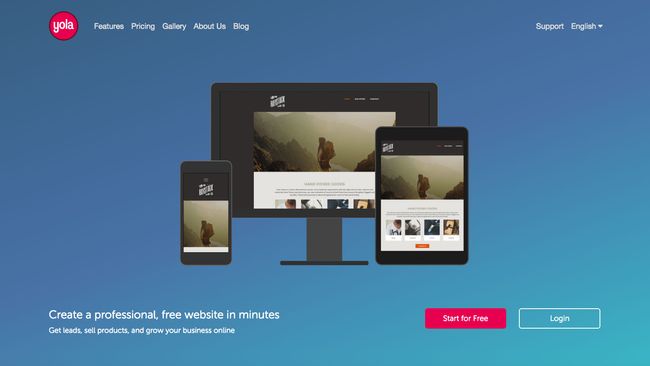
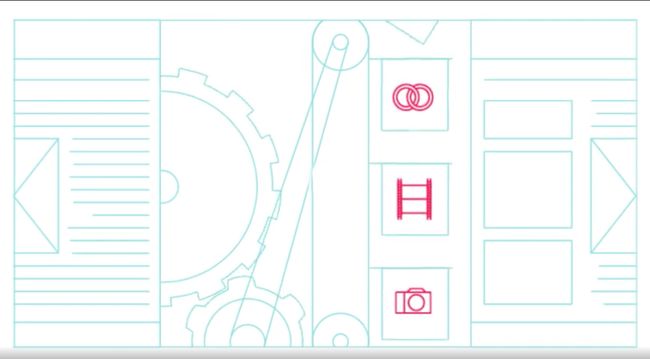
Hubpages is a network of sites that enable bloggers (or Hubbers) to share their story with a vast open community. It has an Arts and Design section, which will be a happy home for creative bloggers, and Hubpages majors on its ability to connect its users with a wide audience and earn revenue from ads and affiliates.
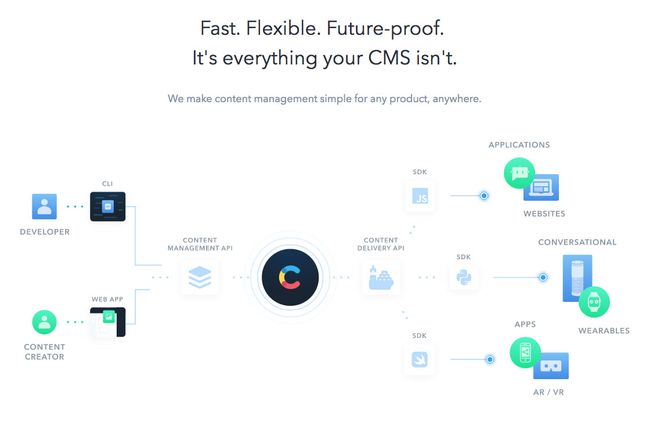
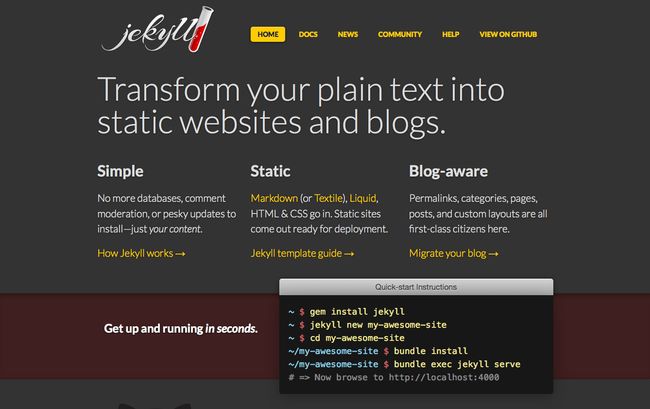
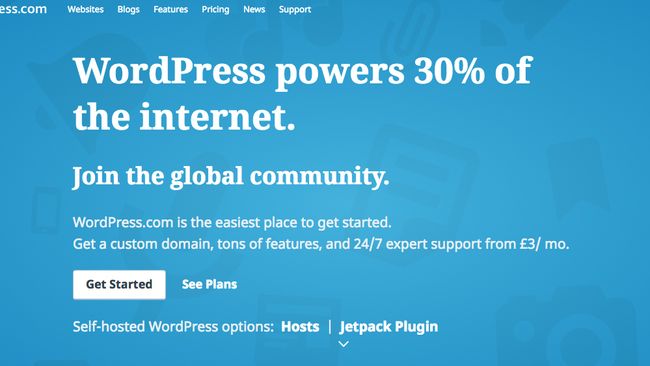
Here you'll find the best the web has to offer, including details to help you decide which free blogging site is right for you. Once you've chosen, head to our how to start a blog post, which will get you up and running in no time.
What is a blogging platform?
A blogging platform is a service or application that facilitates the creation of web pages for publishing your content. These content management systems come in the form of website builders like Wix, blogging applications like Wordpress, or simplified blogging software like Tumblr.
In this round-up, we explore the best free blogging platforms for newcomers who want to get a blog up and running.
01. Wix

Wix's drag-and-drop system is made with HTML5
in mind If you want to get started with your free blog, Wix is well worth a look. This drag-and-drop website builder offers over 500 designer-made templates as well as plenty of additional features and apps, along with top-grade hosting so you can rest assured your site will be there when you need it. You get 500MB storage and 1GB bandwidth with a free Wix account. If you need more – plus other features like your own domain, and online store and Google Analytics – then take a look at its premium plans.
02. Joomla

Joomla is a popular tool among the blogging community
Open source software content management system Joomla is a popular choice among the blogging community. Powerful and flexible, Joomla can be used to build any kind of website or blog, with design features including the ability to create your own template and render HTML for objects/arrays of data. It also uses Bootstrap for perfect responsive designs. Similar to WordPress.org, Joomla is a self-hosted solution, which means you will need a domain name and web hosting to use it (although there is an option to create a site on launch.joomla.org). The Joomla community is much smaller than WordPress community, so there are fewer themes and add-ons than for WordPress. But there are still hundreds of templates to choose from, and extensions to add more features, to fully customise your free blog's design.
03. Yola

Yola boasts flexible layouts and no third-party adsYola limits you a bit if you have grand plans for your blog – you can only have two sites and three web pages with its free plan – but the upside is a healthy 1GB of storage and bandwidth, and your site won't be littered with unsightly third-party ads. Getting started is easy, with dozens of customisable templates to choose from, a straightforward site builder for putting everything together, flexible layouts and drag-and-drop widgets. And if you have the skills, then you can edit your CSS in order to fine-tune your site's look.
04. Hubpages

Join a buzzing community of Hubbers with Hubpages
Hubpages is a network of sites that enable bloggers (or Hubbers) to share their story with a vast open community. It has an Arts and Design section, which will be a happy home for creative bloggers, and Hubpages majors on its ability to connect its users with a wide audience and earn revenue from ads and affiliates.
05. Contentful

Call your content into any design with the Contentful APINobody knows how they're going to want to display their articles a few years down the line, so Contentful provides a way to separate your content from your design. It calls this an 'API-first' approach, so your content is stored on its servers and you can call it into any design or platform as you like. So if you want to build a completely different site in a few years time, it's easy to bring everything in as it's set up to be portable from the start.
06. Jekyll

Make static sites with JekyllJekyll takes your raw text files, which may be written in markdown, if you like, and turns them into a robust static site to host wherever you want. It's the engine behind GitHub Pages, which means you can host your blog on there for free. Making your blog with Jekyll avoids the need to work with technicalities such as databases, upgrades and so on, so there are fewer things to go wrong, and you can build something completely from scratch.
07. WordPress

WordPress is the most popular free blogging platformIf the folks over at WordPress are to be believed (and they seem suitably trustworthy sorts), the platform now 'powers' almost a third of the internet. It's easy to see why: on WordPress.com, you can rapidly create an entirely free blog, with a reasonable amount of customisation. Alternatively, most web hosts provide WordPress as a free single-click install, and more information on what's possible there can be found at WordPress.org. Newcomers might find WordPress a touch bewildering initially, but it's the best free option for anyone wanting a great mix of power, customisation and usability. To help you out, we've rounded up the best WordPress tutorials and the best free WordPress themes to get you started.
Post a Comment
If you have any Questions related to the above post. You can comment below in comment box. I will be happy to Answer you !